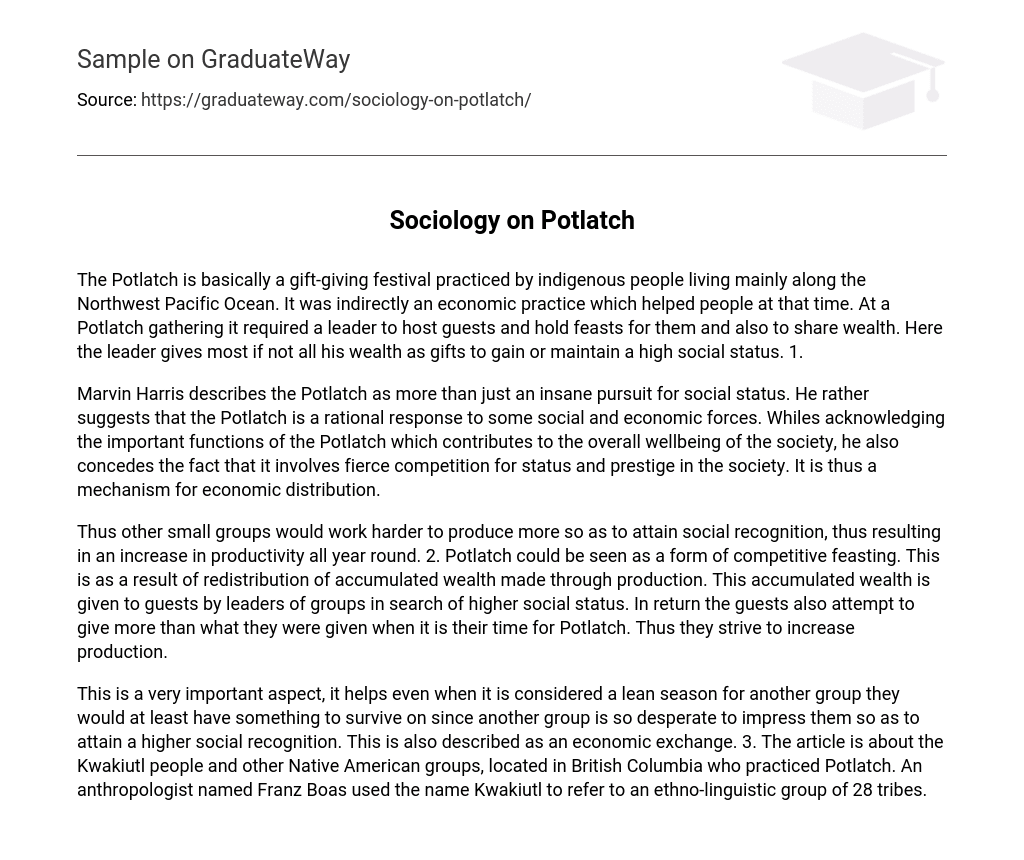The Potlatch, a gift-giving festival, was practiced by indigenous people primarily along the Northwest Pacific Ocean. It served as an economic practice that assisted those living during that time. During the Potlatch gathering, a leader hosted guests, held feasts for them, and shared their wealth. This act allowed the leader to give away a significant portion, if not all, of their wealth as gifts to attain or preserve a prestigious social status.
In his work, Marvin Harris presents the Potlatch as not merely a frivolous quest for social status, but rather as a calculated reaction to specific social and economic factors. He recognizes the significant roles the Potlatch plays in enhancing the general welfare of society, while also acknowledging that it fosters intense competition for status and prestige. Ultimately, he views the Potlatch as a means of economic distribution.
Thus, smaller groups would work harder throughout the year in order to achieve social recognition and increase productivity. Additionally, Potlatch can be viewed as a competitive feast where accumulated wealth from production is redistributed. Leaders of groups give this wealth to guests in an effort to gain higher social status. In turn, guests strive to give more than they received when it is their turn for Potlatch, thus motivating them to increase production.
This aspect is essential as it provides a means of survival for one group when another group is struggling. The desperate nature of one group to impress the other in order to gain social recognition is known as economic exchange. Additionally, the article discusses the Kwakiutl people and other Native American groups in British Columbia who participated in Potlatch. Franz Boas, an anthropologist, used the term Kwakiutl to refer to a collection of 28 tribes with a shared language and culture.





